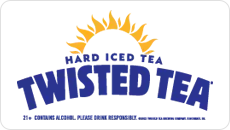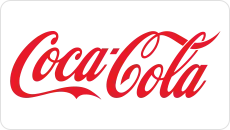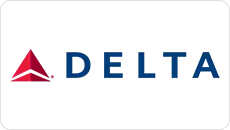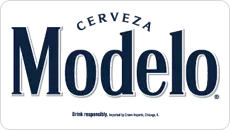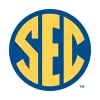
Quick Chat: Melvin Robinson
July 10, 2020 | General, The Frierson Files
By John Frierson
Staff Writer
Melvin Robinson likes to go about things methodically, putting a plan together and then marking each item off the list. It serves the Assistant Athletic Director well in his role overseeing Georgia's facility operations, just as it served him well years ago as a math teacher at Albert Einstein High School in Maryland.
A native of Columbia, S.C., and a graduate of Clemson, Robinson worked at his alma mater as well as Maryland before coming to Athens in 2007 as the Georgia men's basketball team's director of operations. During a recent Quick Chat, Robinson talked about managing facilities during the coronavirus pandemic, what he was like as a teacher, a new-found love of fishing and much more.
Here's some of what he had to say:
Frierson: What have the past few months been like for you?
Robinson: I'm just plugging along, man. We haven't slowed down much in facilities. We've consistently maintained the facilities and then when we got word that staff and student-athletes were coming back we kind of ramped up a little bit more, but we never really slowed down Monday through Friday.
Of course, when all the events were canceled we got our evenings back, but overall we're just staying in front of it. You hear federal and local officials talk about flattening the curve, our job was to stay in front of the curve. Our staff has done a really good job of it.
Frierson: What is it like maintaining facilities when no sports are happening? Is that a different challenge, and has it given you the opportunity to do some things that you wouldn't have been able to do otherwise?
Robinson: The three aspects that facilities oversees are facility management, building services and turf management. With turf management, we've been able to get our fields back really healthy because, of course, no one's on them. From aerating to fertilizing, adding extra water, so they're going to be as healthy as they've ever been. ...
As far as building services, that's been our heavy hitter because everybody's inside, the essential personnel, and we're just trying to protect our facilities, protect our staff, and they've really been head over heels pushing forward and adapting to different cleaning schedules — intensive cleaning schedules. I'm really proud of that group.
Our facilities management and facilities support, they spearhead our events from a facilities standpoint, so they've really been focusing on minor maintenances. Nothing extensive but minor maintenance, trying to get in front of preparing as each sport rolls in and trying to prepare for their new needs.
That's our language now, the new normal. We're focused on three areas: disinfecting, sanitizing and cleaning. They have done a really good job of supporting our building services staff, as well.
Frierson: Do you feel a very long way from being a high school math teacher 15--plus years ago?
Robinson: Yeah [laughs], it's funny, in my free time I've actually started volunteering as a tutor, I'm a math tutor with different organizations now. That's a lot of my time Mondays, Tuesdays and Thursday evenings. Now I have time because we don't have events on the schedule, so I was able to meet that need that I haven't chased in a while.
Being so far removed from being in a classroom to now, going to research, research and development. We've gotten hundreds of emails — I've got this new cleaning agent, I've got this new mask, I've got this new electrostatic sprayer — and sifting through and evaluating everything, bouncing things off of other schools and pro teams, that takes a while and it's something I've been excited to do.
Frierson: Going back to your teaching days in Maryland, how would you describe yourself as a teacher and as a high school basketball and baseball coach?
Robinson: I think my methodology is the same. I'm very mechanized, I like structure. I believe structure follows a strategy, so I teach the same way, I coach the same way; when I was an administrator, a discipline chair, I met with the students the same way to try to help them through their process, through their emotions.
I started off with an icebreaker in math and then we got into a competition in math, and once I got their mental juices flowing, now let's get into the lesson. ... The old-school math problems of, Johnny had an apple, he ate two apples, how many apples are left? I was in Maryland in a diverse community, so sometimes I wrote, somebody had a mango, somebody had blackberries, somebody had blueberries, because there are more fruits than just apples [laughs].
It was the same thing in basketball where we ran an up-tempo offense but we prided ourselves on defensive pressure, full-court press — that was the style they were used to seeing at the college level at the University of Maryland, so those kids loved to emulate that style.
We adapted that style to our program and found early success and the same thing with baseball. At that time, it wasn't a pitching battle back in high school, it was a metal bat battle, a home run battle, and we had a kid that led the region in home runs. I just told him, hey, we're going to get bigger and stronger and we're going to hit the long ball.
The ninth- and 10th-graders, you can't hit the long ball so we're going to use our speed to get on base and then the guy behind you is going to hit the long ball. Just pouring in excitement into each of those programs.
Frierson: You've been a teacher, you've been an academic counselor, you came to Georgia in 2007 as Dennis Felton's director of basketball operations and now you're in charge of facilities — was any of this planned or have you just made these transitions as great opportunities have come available for you?
Robinson: When I left Clemson the first time I was a GA (graduate assistant) with football and I went to Maryland full-time with men's basketball as an academic advisor. I then left and started teaching, so every move built on itself. Looking forward, I didn't see specifically what it was, but it always matched my skillset, so I felt very comfortable with every move that I made.
They called and I interviewed and there would be a need, and my skillset would match their need. I remember I got a call from Coach Felton and we'd become friends at Clemson when I was an undergrad — a lot of my buddies were basketball players and I would help as a student leader on campus with the basketball program. A couple of guys ran my name by him and he said, get that guy down here.
I came to Georgia and I said, heck, I can be a full-time basketball coach, I can be a head basketball coach. I didn't see myself being an athletic administrator at that time, and I definitely didn't see myself in facilities, but I've really come to love, dearly, facilities. Again, it matched my skillset.
I remember the Dean of Students at Clemson, the VP of Student Affairs, saying, there's something about you, you really care, whatever you do you're passionate about. And I'm thinking, I've been like that my whole life. To work with facilities, you have to care, you have to be passionate, you have to have pride in your work, so it ended up being another really good fit.
Frierson: What kind of an athlete were you and what were your best sports?
Robinson: I was a high school athlete and my best sport was actually baseball. I was a three-tool guy and I think I liked the pace of the game and that it was really cerebral. I wasn't really super athletic when I was young because I was so narrow, I actually filled out when I got to college, but I was really narrow. We talk about good fits, nothing else really fit but baseball at that time.
I fell in love with baseball but I went through every sport I could possibly imagine trying to compete at. I was really good at baseball and it became my love.
Frierson: You've obviously been very busy with work and you mentioned the tutoring that you're doing, but what else are you doing with your free time these days?
Robinson: I consider myself an OK amateur golfer and I thought during this time I would be chasing that white ball, but I actually not golfed during COVID. I've actually gotten into fishing. I would fish maybe four times a year, but my evenings free now I'm fishing three or four times a week.
I hit ponds and lakes. Last year, my summer trip was to Charleston (S.C.) and I did some offshore fishing. I remember, the first two weeks of the pandemic, with all of our events canceled, I got outside in the evenings and just walked. One mile turned to two miles and two miles turned to three miles and three turned into four, and eventually, I was at six miles a day, just walking Athens.
While I was walking I would see little bodies of water and after about two-and-a-half weeks I was like, I've got to figure out what's in that body water. I just started fishing and it just started catching on. I actually went yesterday and caught about 30 fish, bream and bass.
Frierson: Do you have a dream fishing trip at this point?
Robinson: I have three things on my fishing bucket list. I want to go to Alaska and I want to catch salmon; I want to go to the Gulf of Mexico and I want to catch a marlin; and then I want to go off the coast of Florida on the Atlantic side and I want to catch a giant grouper. Those are my dream fishing trips and we'll see if we can get there in the next 10-20 years.
(This Q&A was lightly edited for length and clarity.)
Staff Writer
Melvin Robinson likes to go about things methodically, putting a plan together and then marking each item off the list. It serves the Assistant Athletic Director well in his role overseeing Georgia's facility operations, just as it served him well years ago as a math teacher at Albert Einstein High School in Maryland.
A native of Columbia, S.C., and a graduate of Clemson, Robinson worked at his alma mater as well as Maryland before coming to Athens in 2007 as the Georgia men's basketball team's director of operations. During a recent Quick Chat, Robinson talked about managing facilities during the coronavirus pandemic, what he was like as a teacher, a new-found love of fishing and much more.
Here's some of what he had to say:
Frierson: What have the past few months been like for you?
Robinson: I'm just plugging along, man. We haven't slowed down much in facilities. We've consistently maintained the facilities and then when we got word that staff and student-athletes were coming back we kind of ramped up a little bit more, but we never really slowed down Monday through Friday.
Of course, when all the events were canceled we got our evenings back, but overall we're just staying in front of it. You hear federal and local officials talk about flattening the curve, our job was to stay in front of the curve. Our staff has done a really good job of it.
Frierson: What is it like maintaining facilities when no sports are happening? Is that a different challenge, and has it given you the opportunity to do some things that you wouldn't have been able to do otherwise?
Robinson: The three aspects that facilities oversees are facility management, building services and turf management. With turf management, we've been able to get our fields back really healthy because, of course, no one's on them. From aerating to fertilizing, adding extra water, so they're going to be as healthy as they've ever been. ...
As far as building services, that's been our heavy hitter because everybody's inside, the essential personnel, and we're just trying to protect our facilities, protect our staff, and they've really been head over heels pushing forward and adapting to different cleaning schedules — intensive cleaning schedules. I'm really proud of that group.
Our facilities management and facilities support, they spearhead our events from a facilities standpoint, so they've really been focusing on minor maintenances. Nothing extensive but minor maintenance, trying to get in front of preparing as each sport rolls in and trying to prepare for their new needs.
That's our language now, the new normal. We're focused on three areas: disinfecting, sanitizing and cleaning. They have done a really good job of supporting our building services staff, as well.
Frierson: Do you feel a very long way from being a high school math teacher 15--plus years ago?
Robinson: Yeah [laughs], it's funny, in my free time I've actually started volunteering as a tutor, I'm a math tutor with different organizations now. That's a lot of my time Mondays, Tuesdays and Thursday evenings. Now I have time because we don't have events on the schedule, so I was able to meet that need that I haven't chased in a while.
Being so far removed from being in a classroom to now, going to research, research and development. We've gotten hundreds of emails — I've got this new cleaning agent, I've got this new mask, I've got this new electrostatic sprayer — and sifting through and evaluating everything, bouncing things off of other schools and pro teams, that takes a while and it's something I've been excited to do.
Frierson: Going back to your teaching days in Maryland, how would you describe yourself as a teacher and as a high school basketball and baseball coach?
Robinson: I think my methodology is the same. I'm very mechanized, I like structure. I believe structure follows a strategy, so I teach the same way, I coach the same way; when I was an administrator, a discipline chair, I met with the students the same way to try to help them through their process, through their emotions.
I started off with an icebreaker in math and then we got into a competition in math, and once I got their mental juices flowing, now let's get into the lesson. ... The old-school math problems of, Johnny had an apple, he ate two apples, how many apples are left? I was in Maryland in a diverse community, so sometimes I wrote, somebody had a mango, somebody had blackberries, somebody had blueberries, because there are more fruits than just apples [laughs].
It was the same thing in basketball where we ran an up-tempo offense but we prided ourselves on defensive pressure, full-court press — that was the style they were used to seeing at the college level at the University of Maryland, so those kids loved to emulate that style.
We adapted that style to our program and found early success and the same thing with baseball. At that time, it wasn't a pitching battle back in high school, it was a metal bat battle, a home run battle, and we had a kid that led the region in home runs. I just told him, hey, we're going to get bigger and stronger and we're going to hit the long ball.
The ninth- and 10th-graders, you can't hit the long ball so we're going to use our speed to get on base and then the guy behind you is going to hit the long ball. Just pouring in excitement into each of those programs.
Frierson: You've been a teacher, you've been an academic counselor, you came to Georgia in 2007 as Dennis Felton's director of basketball operations and now you're in charge of facilities — was any of this planned or have you just made these transitions as great opportunities have come available for you?
Robinson: When I left Clemson the first time I was a GA (graduate assistant) with football and I went to Maryland full-time with men's basketball as an academic advisor. I then left and started teaching, so every move built on itself. Looking forward, I didn't see specifically what it was, but it always matched my skillset, so I felt very comfortable with every move that I made.
They called and I interviewed and there would be a need, and my skillset would match their need. I remember I got a call from Coach Felton and we'd become friends at Clemson when I was an undergrad — a lot of my buddies were basketball players and I would help as a student leader on campus with the basketball program. A couple of guys ran my name by him and he said, get that guy down here.
I came to Georgia and I said, heck, I can be a full-time basketball coach, I can be a head basketball coach. I didn't see myself being an athletic administrator at that time, and I definitely didn't see myself in facilities, but I've really come to love, dearly, facilities. Again, it matched my skillset.
I remember the Dean of Students at Clemson, the VP of Student Affairs, saying, there's something about you, you really care, whatever you do you're passionate about. And I'm thinking, I've been like that my whole life. To work with facilities, you have to care, you have to be passionate, you have to have pride in your work, so it ended up being another really good fit.
Frierson: What kind of an athlete were you and what were your best sports?
Robinson: I was a high school athlete and my best sport was actually baseball. I was a three-tool guy and I think I liked the pace of the game and that it was really cerebral. I wasn't really super athletic when I was young because I was so narrow, I actually filled out when I got to college, but I was really narrow. We talk about good fits, nothing else really fit but baseball at that time.
I fell in love with baseball but I went through every sport I could possibly imagine trying to compete at. I was really good at baseball and it became my love.
Frierson: You've obviously been very busy with work and you mentioned the tutoring that you're doing, but what else are you doing with your free time these days?
Robinson: I consider myself an OK amateur golfer and I thought during this time I would be chasing that white ball, but I actually not golfed during COVID. I've actually gotten into fishing. I would fish maybe four times a year, but my evenings free now I'm fishing three or four times a week.
I hit ponds and lakes. Last year, my summer trip was to Charleston (S.C.) and I did some offshore fishing. I remember, the first two weeks of the pandemic, with all of our events canceled, I got outside in the evenings and just walked. One mile turned to two miles and two miles turned to three miles and three turned into four, and eventually, I was at six miles a day, just walking Athens.
While I was walking I would see little bodies of water and after about two-and-a-half weeks I was like, I've got to figure out what's in that body water. I just started fishing and it just started catching on. I actually went yesterday and caught about 30 fish, bream and bass.
Frierson: Do you have a dream fishing trip at this point?
Robinson: I have three things on my fishing bucket list. I want to go to Alaska and I want to catch salmon; I want to go to the Gulf of Mexico and I want to catch a marlin; and then I want to go off the coast of Florida on the Atlantic side and I want to catch a giant grouper. Those are my dream fishing trips and we'll see if we can get there in the next 10-20 years.
(This Q&A was lightly edited for length and clarity.)
Assistant Sports Communications Director John Frierson is the staff writer for the UGA Athletic Association and curator of the ITA Men's Tennis Hall of Fame. You can find his work at: Frierson Files. He's also on Twitter: @FriersonFiles and @ITAHallofFame.
Dawgs Choice Awards 2025
Thursday, May 01
Mike Bilbow Funeral
Tuesday, April 22
BMW AD Update with Josh Brooks
Wednesday, December 11
2024 Arch Award - CJ Byrd
Sunday, October 06

